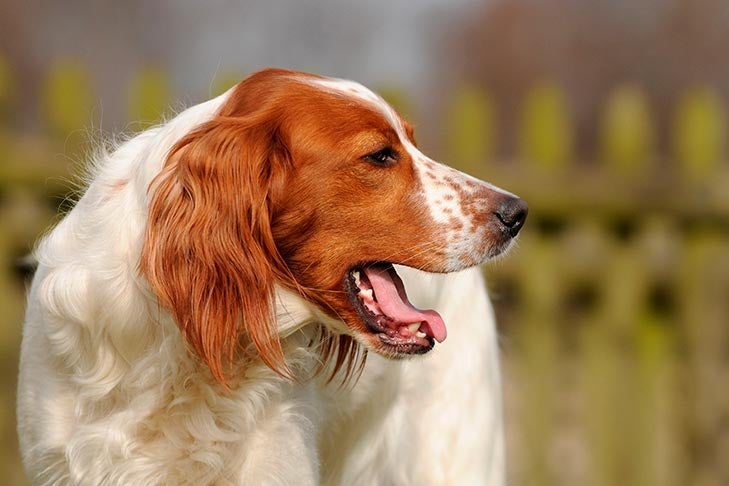…
Other kennel cough symptoms may include:
- Runny nose.
- Sneezing.
- Lack of appetite.
- Lethargy.
- Low fever.
You’ve probably heard your dog cough before. Just like it is for you, it’s a part of life for our canine friends. But not all coughs are created equal. Coughing in dogs can be nothing to worry about or a sign of something serious, depending on how it sounds and what’s causing it.
The occasional cough isn’t an issue. A dog may cough to clear their throat just like you do. Due to the fact that your dog primarily uses its mouth and nose to explore the world, it’s simple for dust, dirt, grass, and other foreign objects to get stuck in the throat and cause a cough. Your dog probably just uses the occasional cough to get rid of those materials.
When a cough persists, that is when there is cause for concern. It’s time to take your dog to the veterinarian for a checkup if they can’t stop coughing.
Clubs Offering:
Most dog owners’ heads start racing when they hear their dog cough. A dog cough can have many causes, some of which can be dangerous, so you should consult your veterinarian if you suspect your dog is ill, choking, or otherwise in distress. What you should know about the causes of canine coughing and what you can do to treat it are listed below.
Dogs explore the world with their nose—and occasionally their mouth. Your dog encounters a variety of things, such as dust, pathogens, and the occasional grass stem. The fact that all of these things can make your dog cough makes it difficult to tell whether the cough is serious or just your dog clearing her throat.
An occasional cough in a dog could be considered normal behavior and is not cause for alarm. On the other hand, persistent coughing might indicate a more serious issue, particularly if there are changes in breathing sounds or patterns.
Identifying the type of cough in your dog is one way to reduce the list of potential causes. Gathering this data is crucial so that your veterinarian can make an educated choice regarding your pet’s care. Ask yourself the following questions:
Each of these types of cough indicates a particular problem. When you call your veterinarian, be sure to describe the sound of your dog’s cough because this can help determine whether it is an emergency or if it might be a contagious illness like kennel cough or the canine influenza virus.

A canine cough that is deep, dry, and honking may be a sign of kennel cough or tracheobronchitis (an infection of the upper airways, not the lungs). A virus or bacterium can cause the highly contagious disease known as kennel cough. It typically only causes minor illness and discomfort, but if it gets into the lungs, it can lead to more serious issues like chronic bronchitis or pneumonia.
In boarding and doggy daycare facilities, as well as any other locations where dogs congregate, dogs can contract kennel cough. Although it usually doesn’t cause any serious complications, your vet may prescribe some medication to help with the cough and may advise you to keep your dog away from other dogs until the infectious stage has passed.
A high-pitched, gagging cough may be an indication of an infection, irritation, or even a partial blockage of the upper airways. Your dog may have a sore throat that is either secondary to tonsillitis, which is relatively uncommon in dogs, secondary to mouth or sinus infections, or it may be caused by a foreign object or material stuck in his throat. Foreign objects in the throat are dangerous because they obstruct breathing and swallowing properly. It may be potentially fatal if a foreign object enters your dog’s esophagus, so you should take him to the vet right away.
A lower airway or lung (pulmonary) issue could be indicated by a wet, phlegmy, or “moist” cough. Those wet, gargling noises suggest that your dog’s lungs may be filled with fluid. In contrast to other coughs, this one causes labored breathing even when the dog is not coughing. This requires immediate veterinary care, so you should call your vet right away to schedule an appointment for your dog.
Older dogs and puppies as well as those with underdeveloped or weakened immune systems are typically affected by pneumonia. Pneumonia in dogs can be brought on by a variety of things, such as bacteria, viruses, parasites, fungi, or aspiration secondary to inhaling foreign material after vomiting or after being exposed to toxins like gasoline or petroleum distillates, among others.
Toy breeds are at an increased risk of tracheal collapse. A cough that makes a goose-like noise is one of the signs of tracheal collapse. When your dog pulls against his collar, this sound might become more noticeable, and obese dogs are more likely to experience tracheal collapse. It may also manifest itself while exercising in humid, hot weather.

There are many types of heart disease in dogs. Fluid may begin to build up in the lungs when the heart’s pumping capacity is compromised. This is called Congestive Heart Failure.
As the condition worsens, dog breeds predisposed to heart disease, such as Cavalier King Charles Spaniels, may begin coughing. Typically occurring while your dog is sleeping or lying down, this type of coughing indicates that fluid is amassing around your dog’s lungs. This is a serious symptom, so be sure to discuss congestive heart failure treatment options with your veterinarian.
Less Common Causes of Dog Cough
Although the aforementioned causes of canine coughing are all serious, your veterinarian may want to rule out some additional, less typical causes as well.
Coughing in dogs is usually treatable. The underlying cause of your dog’s cough must first be identified by your veterinarian before the cough can be treated. Veterinarians make diagnoses using a combination of clinical signs and tests. To ascertain what is bothering your dog, your veterinarian will conduct a physical examination, listening to your dog’s heart and lungs, taking your dog’s temperature, and ordering any necessary diagnostic tests.
Your veterinarian will discuss a treatment strategy tailored to your dog’s particular needs that addresses both your dog’s coughing and the underlying condition once he determines the underlying cause.
Chronic Bronchitis
When a dog’s airways are inflamed and no other cause is found, chronic bronchitis is usually diagnosed. A hacking cough is most often associated with chronic bronchitis, and it typically gets worse when a dog exercises.
FAQ
Is my dog coughing or gagging?
Coughing and gagging may sound similar when they occur, but they are not exactly the same thing. Your dog gets a cough when it pushes air out of its mouth and throat. Gagging is more akin to vomiting, but only phlegm or mucus comes out.
How can I help my dogs cough?
Honey can help calm your dog’s throat and lessen coughing, making it a great natural remedy for kennel cough. You can provide your dog with a bowl of warm water and 1/2 to 1 tablespoon of honey. Depending on how frequently your dog coughs, you can give this up to three times per day.
When should I be concerned about my dog’s cough?
You should be able to provide your veterinarian with some information regarding your dog’s cough, such as whether it sounds dry or wet, when it started and how frequently it occurs, whether any accompanying discharge (blood or mucus) is being coughed up, and whether it occurs more frequently after meals or at night.